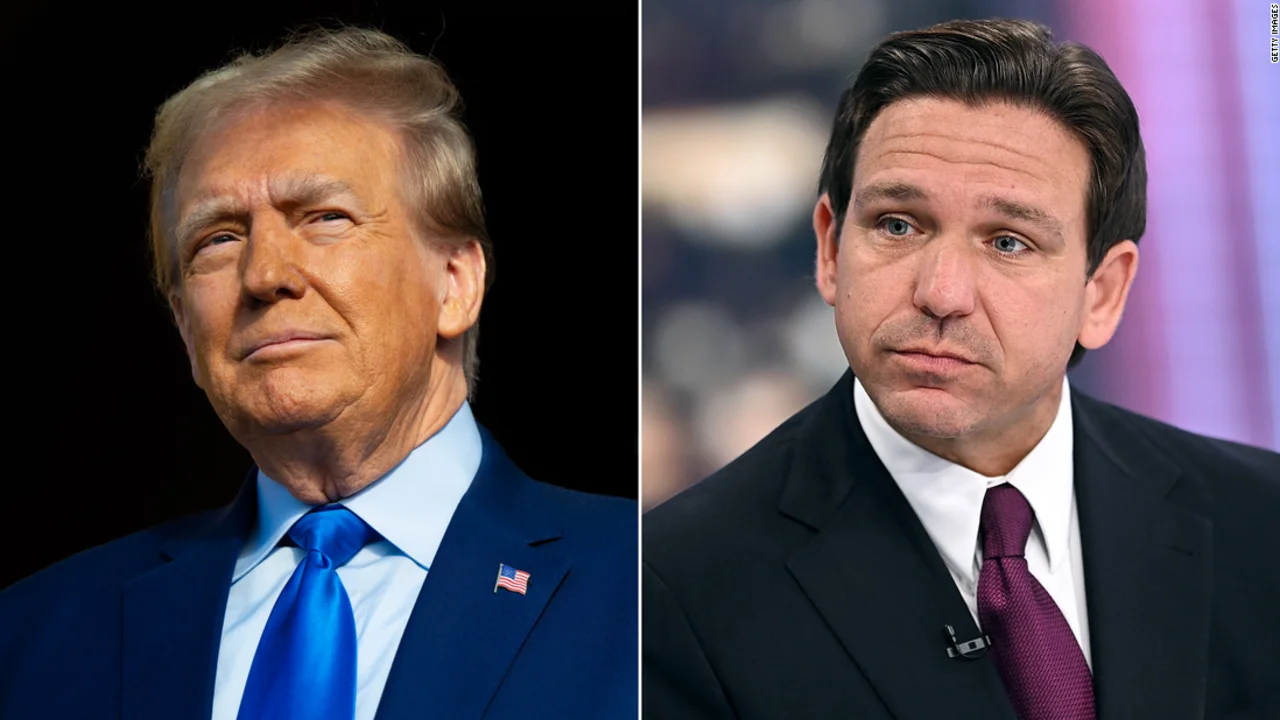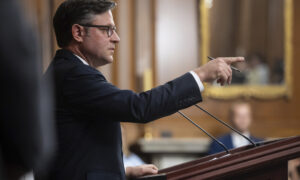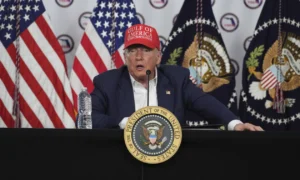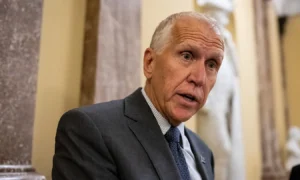After publicly supporting then-candidate Trump, a Florida Republican senator is now challenging Gov. Ron DeSantis’ commitment to Florida’s Jewish population. After being rejected by DeSantis earlier this year, another state senator is now trying to get as many of his colleagues as possible to support Trump. Meanwhile, a group of political operators formerly associated with Governor DeSantis but who left on bad terms have become deeply embedded in the Trump world and are driven to shame their former boss.
As promised, here is the 2024 Revenge Tour.
Trump has gotten the upper hand in the battle for home state dominance in part by playing on tensions between DeSantis and other Florida Republicans. DeSantis’s rise to political prominence has been accompanied by a wave of animosity throughout the state, making the plan more successful than the old administration had hoped.
As the 2024 campaign descends on Florida in the coming days, the ever-evolving relationship between the state’s Republicans and these two prominent characters will be on full show.
On Saturday, just outside of Orlando, Trump, DeSantis, and the rest of the GOP primary field will speak to Florida Republicans at a state party rally. Sandwiched between his antagonistic predecessor in Tallahassee, Florida Senator Rick Scott, and the state’s lone Jewish Republican lawmaker, Randy Fine, who recently claimed DeSantis hasn’t done enough to stop Nazis and antisemitism in Florida, was DeSantis’ midday time slot. Scott endorsed Trump on Thursday and Fine turned to the former president a month ago.
DeSantis told the audience Saturday that he was unconcerned about Florida state lawmakers switching their endorsement to Trump because “it’s a dynamic thing.”
This is normal for these situations. Politicians “do what they’re gonna do,” DeSantis said, adding that “we’ve had flips the other way in other states.”
Two Florida Republicans, Representatives Byron Donalds and Matt Gaetz, are big Trump supporters, and they will speak to the assembled Republicans before Trump delivers the event’s closing keynote address.
Then, on Wednesday, the Republican Party will conduct its third presidential debate in Miami. As usual, Trump will be absent from the debate in favour of counterprogramming in nearby Hialeah. Trump will continue his seduction of party officials and donors the next day when he hosts Florida Republicans at Mar-a-Lago, while DeSantis travels around the state to attend fundraisers.
Meanwhile, lawmakers are coming to Tallahassee next week at his urging to enact more penalties against Iran in the wake of Hamas’ attack on Israel last month, demonstrating DeSantis’ ongoing dominance over the GOP-controlled state Legislature. They will also try to fix the property insurance problem in Florida, which has been a sore spot for DeSantis in the local press.
The governor’s formerly unchallenged clout in the Sunshine State has taken many setbacks in recent months. Less than a year after orchestrating the most resounding electoral victory in Florida gubernatorial history, some Republicans here have broken with DeSantis due to his travails as a presidential contender. Trump’s advantage in early nomination states and national polls looks stable as the Iowa caucuses near, but DeSantis has fallen to a distant second place alongside a surging Nikki Haley, the former governor of South Carolina.
His efforts over the past decade to reassert himself as the dominating political force in the state have continually run into the adversaries he has amassed.
DeSantis may have dismissed Fine as someone who only wants “15 minutes of fame,” but the governor’s supporters are getting ready for more lawmakers to switch sides. Six Republicans, primarily newcomers elected just last year, could switch parties, according to a DeSantis aide.
Former Florida state party chair and current state senator Joe Gruters, who was routinely iced out by DeSantis, is helping to recruit more Republicans to Trump and has promised to unveil a “pretty good group” in the coming weeks. But he acknowledged that most lawmakers will stick with DeSantis, a fact he witnessed firsthand when DeSantis axed his projects from the state budget earlier this year after Gruters endorsed Trump, citing the persuasive force of the governor’s line-item veto powers.
Recently, Gruters won a major victory for Trump in Florida by blocking an effort by DeSantis’s supporters to require presidential candidates to sign a loyalty pledge in order to appear on the state’s primary ballot. The idea was voted down by an overwhelming margin, a humiliating blow for DeSantis supporters and evidence of Trump’s ongoing popularity among Republican Party officials.
The hammer had officially been dropped, as Gruters put it. That again proved that the party of the president is the rightful one.
State House Speaker Paul Renner said most Republican lawmakers are behind DeSantis because he has proved he’s better positioned to transfer GOP wins in Florida to the national stage.
Renner emphasised that elections should focus on the future, rather than the past. To quote one of his close associates: “Those of us who live here and those of us who work closely with his team know this is a guy that delivers results.”
The DeSantis campaign claims the governor’s popularity has not waned in Florida. It was observed by DeSantis’s spokesman Andrew Romeo that he is still supported by most elected politicians “despite running against a de facto incumbent president.”
“The governor will win his home state because Floridians want to see a fighter who will bring the same type of results-oriented leadership to Washington that he has provided in the Sunshine State,” Romeo predicted.







